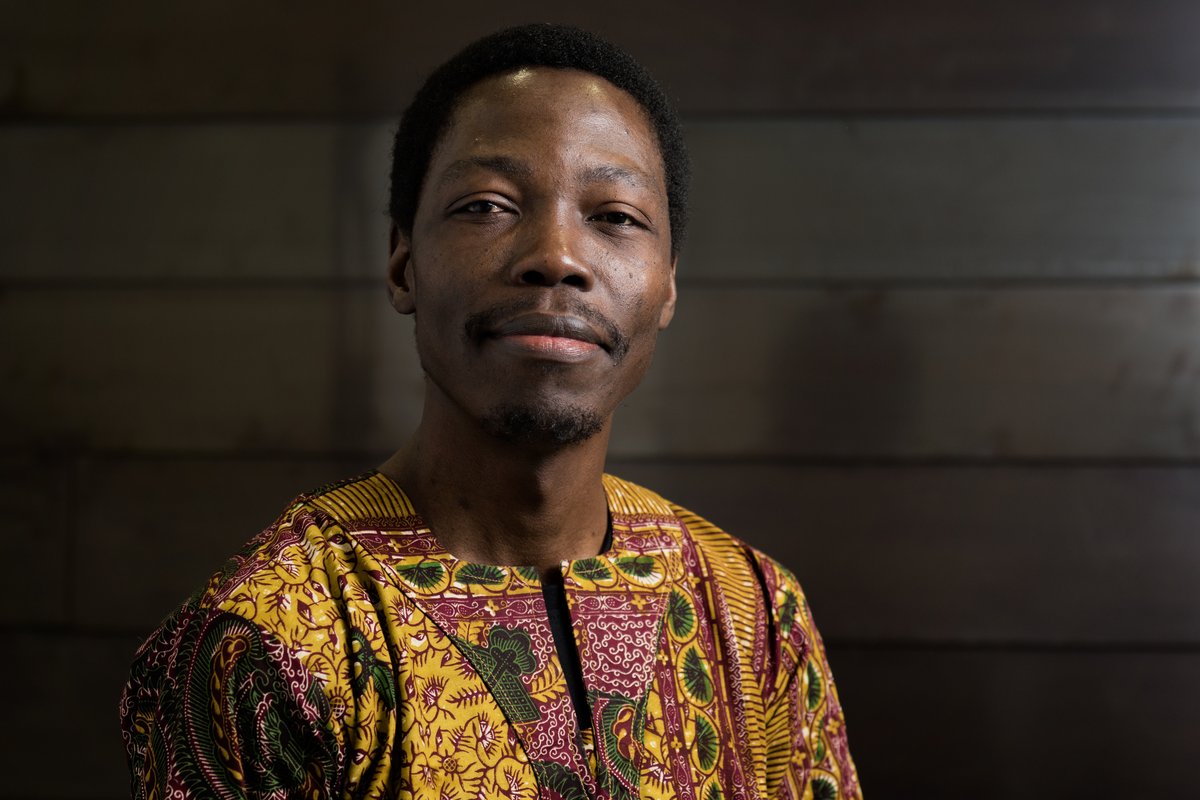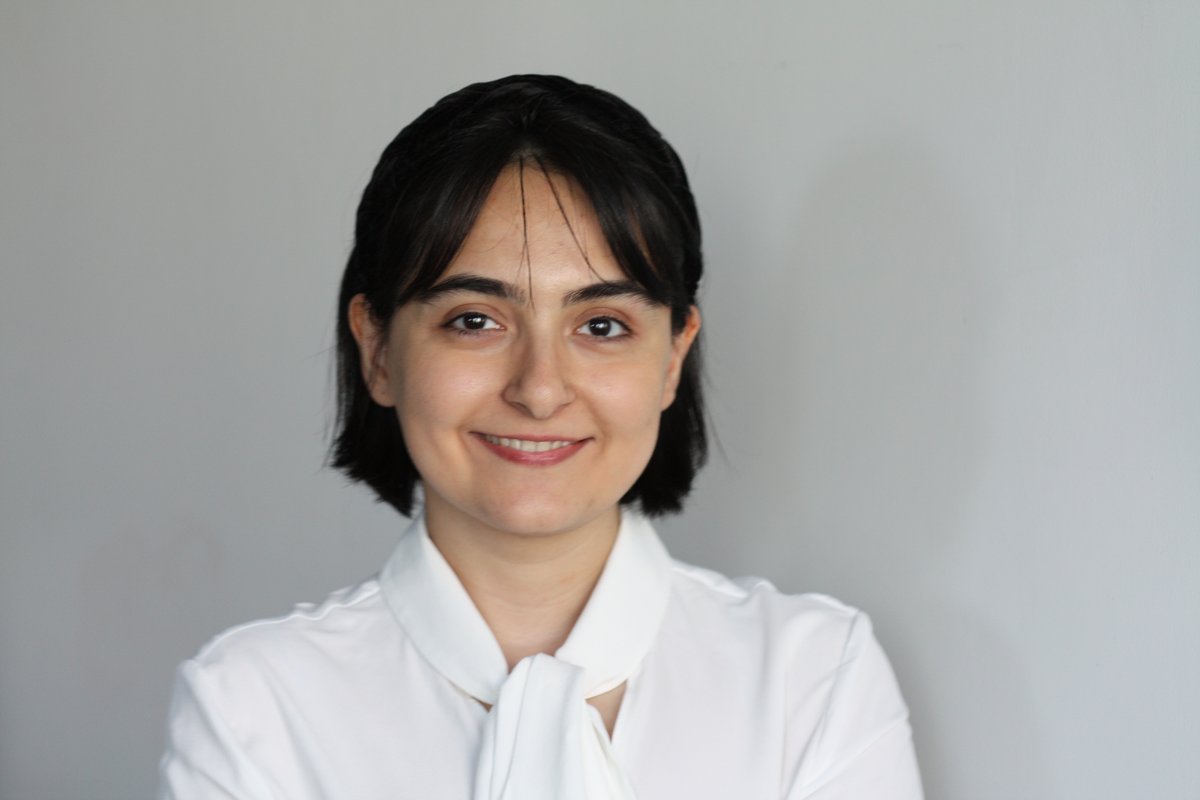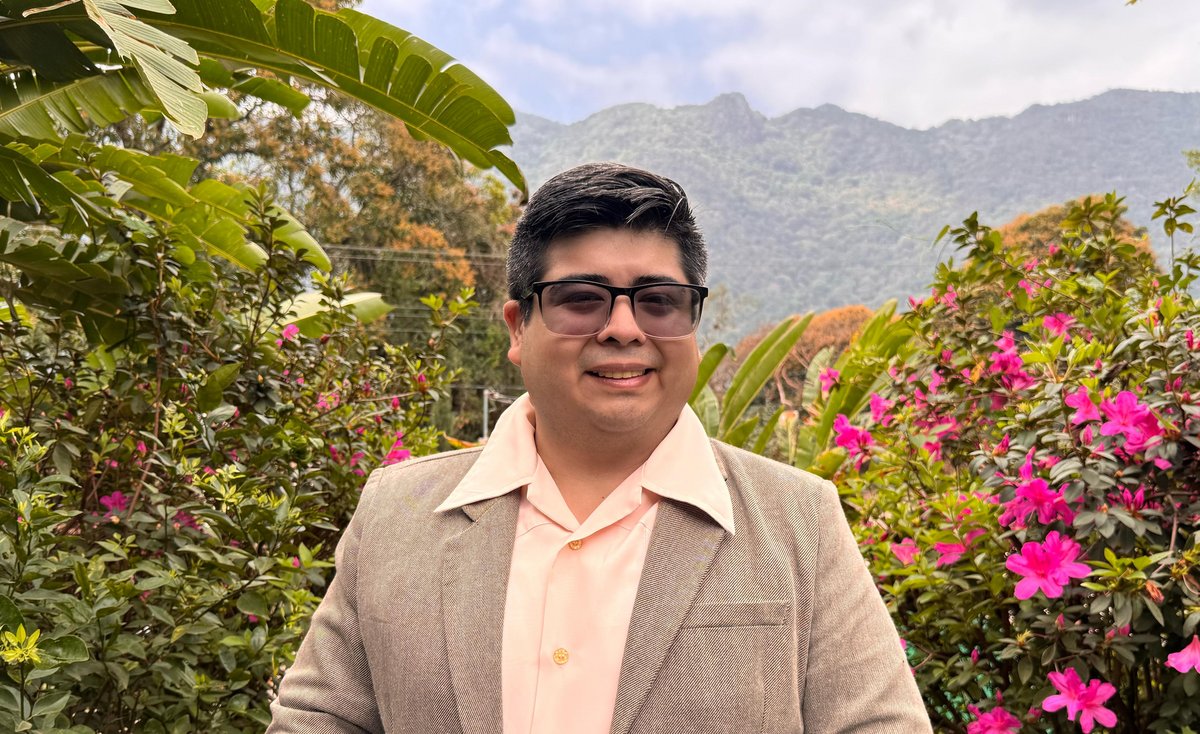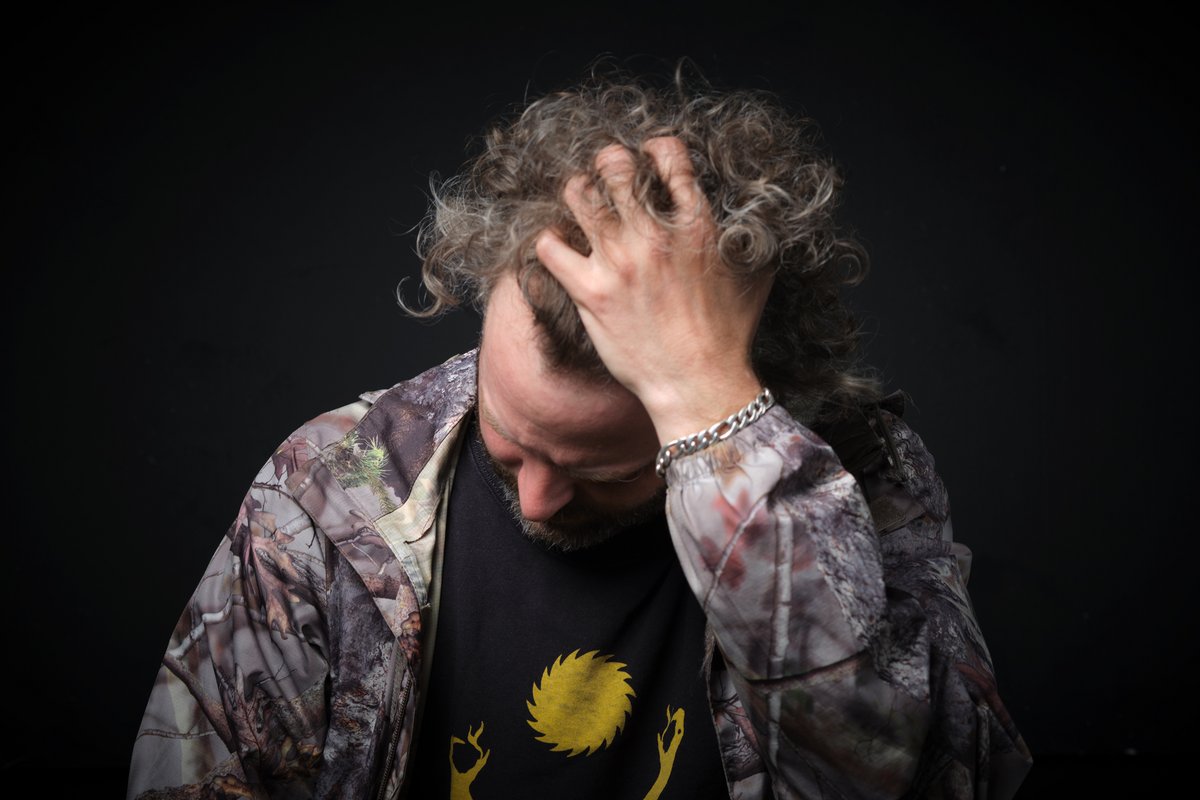Doctoral Candidates
Jonathan Bill Doe, M.A. Doctoral Candidate
Jonathan Bill Doe majored in Philosophy of History at the University of Ghana and later received an M.A. in Museum and Heritage Studies from the same university. He conducted field work and participated in the Koma Land archaeological research project in Northern Ghana for his M.A. thesis under the supervision of Prof. Benjamin Warinsie Kankpeyeng. Jonathan Doe then completed methods courses in teaching history at University of Cape Coast, earning a Postgraduate Certificate in Education. He moved to BTU Cottbus-Senftenberg to pursue an M.A. in World Heritage Studies, completing his thesis on Archaeology of Wetlands Commons: Anlo Adaptive Management of Keta Lagoon under the guidance of Prof. Dr. Astrid Schwarz and Dr. Anca Prodan.
At BTU, Jonathan Doe has worked as a research assistant on the Environmental Humanities project at the Chair of Technoscience Studies. He has also worked with the Historical Society of Ghana and as a freelance tour guide and interpreter of Ghanaian heritage for both local and international audiences. He was a member of the USA’s National Science Foundation sponsored research project, Diaspora for Development, serving as a Willamette University Junior Scholar. Jonathan Doe has shared his ideas with professionals, academics and activists in Taiwan, Japan, USA and the Netherlands. He has been featured on The Ghanaian State public broadcasting and in radio documentaries, giving reflections on current affairs. Jonathan was awarded 2021 DAAD STIBET scholarship and presently KAAD scholarship holder. His is working on PhD topic, Urban Gardening and Sociotechnical Imaginary in Postcolonial Ghana with Prof. Dr. Astrid Schwarz at BTU.
Contact
Jonathan Bill Doe, M.A.
Lehrgebäude 10
Erich-Weinert-Str. 1
03046 Cottbus
jonathanbill.doe(at)b-tu.de
Office Hours
Only by appointment
Research Fields
Technology as Epistemic Culture
- Theories of Technoscience
- Postcolonial Philosophical Fieldwork
Ethico-political Thinking
- Garden Practice in the Commons
- Decolonising Ecology
- Wetland Culture
Environmental Anthropology
- From Homo faber to Homo hortensis
Images as Instruments
- Urban Futures
Ahmed Noaman El-Sherbini, M. Sc. doctoral candidate
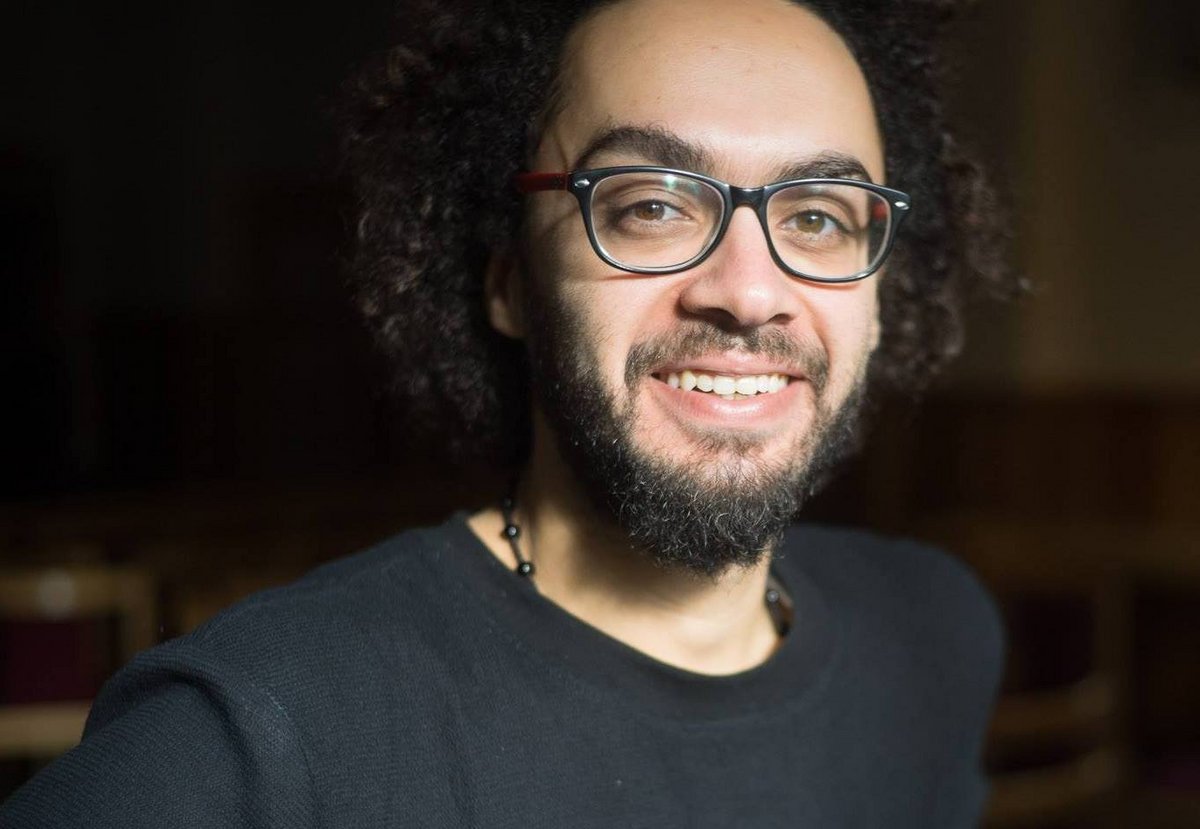
Ahmed has a bachelor of engineering (B. Eng.) degree, majoring in power mechanics. After completing the bachelor Ahmed worked for 4 years in different engineering projects (e.g. amusement parks, water processing stations, solar energy and solar heaters). Through his work experience he developed an interest in environmental concerns and renewable energy. 5 years after the bachelor Ahmed was accepted for a maser’s study in Environmental and Resource Management in B-TU Cottbus-Senftenberg, Germany.
During his master’s studies Ahmed gained and developed new interest in the sociological and philosophical aspects of environment and energy. For his master’s thesis, he applied qualitative analysis of the phenomenon of Energy/Fuel Poverty within European policy discourse with the Technoscience Chair under the supervision of Prof. Dr. Astrid Schwarz and Dr. Ingmar Lippert. Ahmed’s master’s thesis was published in December 2023, in cooperation with Dr. Ingmar Lippert, in Routledge (Taylor & Francis Group)’s project “Living with Energy Poverty: Perspectives from the Global North and South”. The thesis is the 19th chapter of the book, which is titled “From Energy Poverty to Vulnerability: A Discourse Analysis of the European Union’s National Energy and Climate Plans”.
Ahmed also worked as a research assistant for about two and half years with Energypedia UG, a wiki platform for collaborative knowledge exchange on renewable energy, energy access, and energy efficiency. During his time he worked (solely/co-authored and updated) on variety of articles regarding different energy topics (e.g. From the ‘Energy Ladder’ to ‘Fuel Stacking’, The Economics of Renewable Energy, The Off-grid Appliance Market, Access to Modern Energy, Mini grid Operation Models). A part of Energypedia’s vision is to have an all-inclusive designed energy profiles for nations worldwide, and particularly the countries of the Global South. Ahmed worked on and updated a total of 47 energy profiles (e.g. Egypt, Suriname, Malawi, Ghana, Lesotho).
Ahmed has also a one and a half years of experience working as university tutor in B-TU –during his studies–, distributed over three semesters. Additionally, Ahmed worked for about a year and a half with Deutsche Welle in Egypt as an interpreter (Arabic-English and vice-versa).
For his PhD Ahmed intends to investigate the socio-historic relations between different human societies and energy sources through history, and how these relations participate in shaping and forming human history. Moreover, how also these relations shape different energy transitions through the ages, and the role of community energy in shaping the current energy transition.
Contact
Ahmed Noaman El-Sherbini
Lehrgebäude 10
Erich-Weinert-Str. 1
03046 Cottbus
Office hours
By appointment only
Research areas
Technology as Epistemic Culture
- Theories of techno-science
- Energy transition(s) as cultural practice(s) and need(s)
Environmental Anthropology
- The complex reciprocal relations between human-societies, their environments and the available energy resources
- Understanding Energy Transitions within the context of indigenous natural resources management in correlation to indigenous energy needs
Future narratives
- How the current Energy Transition and the current state of the energy market will shape the future of human societies and vice-versa
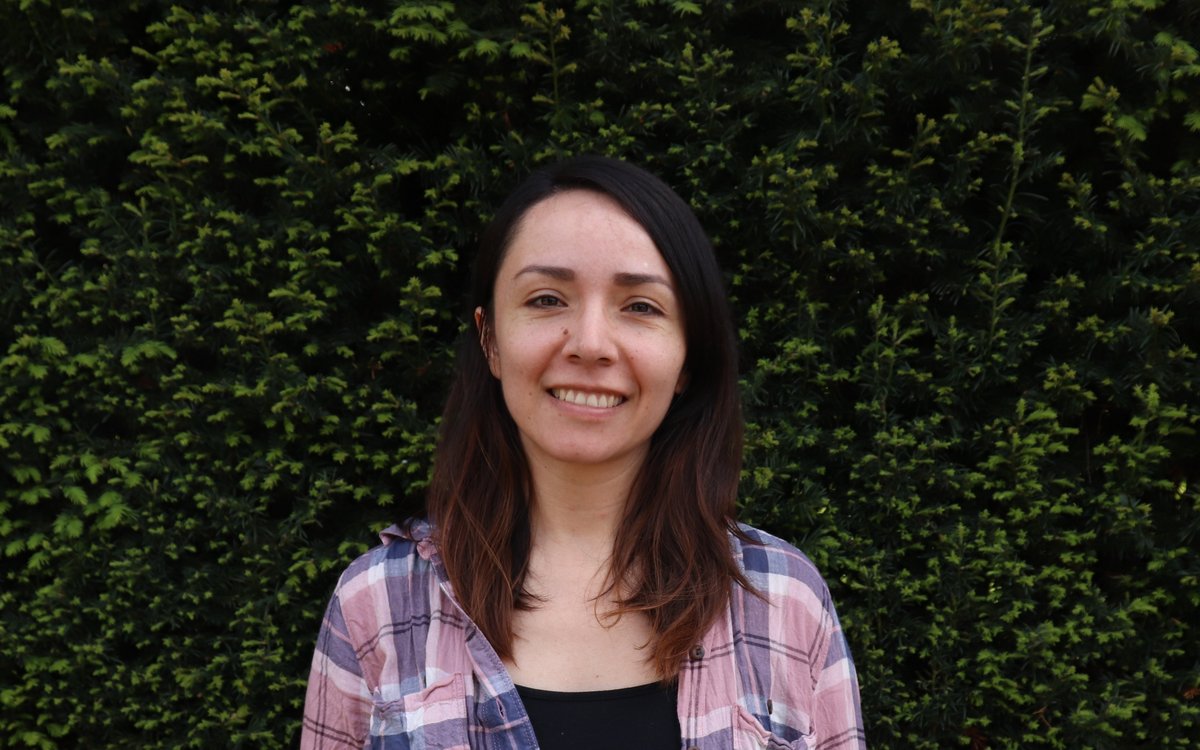
Paloma Leguizamón, M.A. Doctoral Candidate
Paloma Leguizamón is anthropologist/archaeologist and M.A. in Anthropology (Archaeology and Bioanthropology research line) from the National University of Colombia. Her professional experience has focused on cultural heritage, archaeological heritage and World Heritage management, management plan formulation, and declaration processes of cultural heritage in Latin America. Since 2016 she served as Head of Archaeological Protected Areas and World Heritage, Coordinator of the Heritage Group and Deputy Director of Heritage Management at the Colombian Institute of Anthropology and History – ICANH, public national entity in charge of the archaeological heritage in Colombia, where she led processes of nomination and management of World Heritage Sites. She is also a member of ICOMOS Colombia and has been part of the World Heritage Leadership Program of the International Centre for the Study of the Preservation and Restoration of Cultural Property (ICCROM).
At BTU Paloma Leguizamón is currently working on her PhD research project with Prof. Dr. Astrid Schwarz. Her research aims to understand the role of World Heritage in post-conflict contexts in Latin America as a base for enhancing the protection of World Heritage Sites and community involvement.
Contact
Paloma Leguizamón
Teaching building 10
Erich-Weinert-Str. 1
03046 Cottbus
Office hours
By appointment only
Research areas
Environmental Anthropology
- Cultural heritage management
- World Heritage Management
- Community engagement
- Cultural heritage and conflict

Martha Lütjen, M.Sc. Doctoral Candidate
Martha studied Horticultural Sciences at the Humboldt University of Berlin from 2015 to 2018. In 2021 she completed a Master's degree in Geoecology at the University of Potsdam. As a student, she worked for several years at the Alfred Wegener Institute for Polar and Marine Research (AWI). In her master's thesis, she developed a model for predicting river ice growth in remote arctic regions, which she later published as a research associate (DOI: 10.1080/15230430.2024.2350546).
Most recently, she spent two years as a research trainee in the gardening team of the Branitz Park in Cottbus. For over a decade, she has also traveled regularly to the United Kingdom – especially to the Scottish Hebrides – where she has lived and worked alongside local gardeners, international volunteers, and members of intentional communities.
In her doctoral research at BTU Cottbus, supervised by Prof. Dr. Astrid Schwarz (Chair of Technoscience Studies) and co-supervised by Prof. Anna Lundqvist (Chair of Landscape Architecture), she investigates the intellectual and practical knowledge that garden culture – particularly historic Walled Gardens – can offer to reorganize human life on Earth.
Her project combines historical and theoretical research with ethnographic methods such as participant observation and craft research.
Contact
Martha Lütjen
Teaching building 10
Erich-Weinert-Str. 1
03046 Cottbus
martha.luetjen(at)gmail.com
Office hours
By appointment only
Research areas
Environmental Anthropology
- Gardening Practices in the Anthropocene
- From Homo faber to Homo hortensis
- Care Ethics
Marina de Castro Teixera Maia, M.A. Mestra em Planejamento Urbano e Regional (Univ. Federal do Rio Grande do Sul) | Doctoral Candidate
Marina Maia did her Bacharelado em Arquitetura e Urbanismo (Bachelor in Architecture and Urban Planning) at the Federal University of Ceará (Brazil). She completed her Mestrado em Planejamento Urbano e Regional (Master in Urban and Regional Planning) at the Federal University of Rio Grande do Sul in the research line City, Culture and Politics.
Marina Maia has worked as a research assistant in a project comprising ecological sustainability and heritage management in urban planning (under Prof. Dr. José Almir Farias Filho). In her Master’s, she did research on urban history, axiology, and heritage policy (under Prof. Dr. Inês Martina Lersch). She also did her training at Brazil’s National Institute of Historical and Artistic Heritage (IPHAN), Fortaleza, Ceará, and at France’s National Directory of Cultural Affairs (Drac), Lyon, Rhônes Alpes. Marina Maia is a member of ICOMOS Brazil and her research interests lie in the fields of Cultural Heritage, Urban History, Planning, Cartography, Conceptual and Political History. Currently, she is working on her PhD thesis with Prof. Dr. Astrid Schwarz. Her studies at the Chair of Technoscience Studies are supported through a schloarship by DAAD (Deutscher Akademischer Austauschdienst). The scholarship was extended recently.
Contact
Marina de Castro Teixera Maia
Lehrgebäude 10
Erich-Weinert-Str. 1
03046 Cottbus
marina.deCastroTeixeiraMaia(at)b-tu.de
Office Hours
Only by appointment
Research Fields
Technology as Epistemic Culture
- Boundary Objects
- Conceptual History
Ethico-political Thinking
- Heritage Policy and Management
- Heritage Activism
- Cultural Rights
Images as Instrument
- Historical GIS
- Historical Cartography
Sara Molaei Doctoral Candidate
Sara Molaei is an architect (B.Sc., Shariaty Technical and Vocational University, Tehran) and holds an M.A. in World Heritage Studies from Brandenburg University of Technology (BTU) Cottbus–Senftenberg. She is currently a PhD candidate at the Chair of Technoscience Studies, Faculty 5, BTU, supervised by Prof. Dr. Astrid Schwarz.
Before joining BTU, Sara worked for two and a half years in an architectural studio in Tehran, contributing to residential, workplace, and adaptive reuse projects, including the restoration of a historic bridge in Tehran, Mashhad, and Khoy. During her master’s studies, she interned at Ruairí O'Brien Architektur in Dresden, where she contributed to the conceptual development of a commercial project in Cairo, Egypt, and gained experience in urban lighting design in Germany, and later worked in an international company in Berlin, focusing on circular construction and the circular economy.
Her master’s thesis examined the diversity of urban gardening practices in Tehran, forming the foundation for her current PhD research. Within the field of Transformation Studies, her project explores Family Gardens in Tehran as urban transformatives. The study employs the frameworks of sociotechnical and environmental imaginaries to analyze institutional design, everyday practice, and the symbolic dimensions of gardening from a Global South perspective.
Contact
Sara Molaei
Lehrgebäude 10
Erich-Weinert-Str. 1
03046 Cottbus
Office Hours
Only by appointment
Research Fields
- Transformation Studies
- Sociotechnical Imaginaries
- Environmental Humanities
- Urban Gardening and Green Governance
- Heritage and Urban Memory
Giovanni Alberto Chávez Morales Doctoral Candidate
From Gómez Farías, Tamaulipas, México, He has a Bachelor in Pedagogy of Social Sciences by UCM and a Master in Archaeology by El Colegio de Michoacán A.C.
His professional experience had him working with the National Institute of Anthropology and History (INAH) in México, at the Archaeological Rescue Project "Tren Maya" and in the Archaeological Zones Improvement Project (ProMeZA) at the Paamul II archaeological site.
He has published 3 books, a book chapter and 2 articles in scientific magazines regarding anthropology and heritage studies, all available for free consultation online.
At BTU he is currently working on his PhD research project with Prof. Dr. Astrid Schwarz.
Contact
Giovanni Alberto Chávez Morales
Lehrgebäude 10
Erich-Weinert-Str. 1
03046 Cottbus
Office Hours
Only by appointment
Research Fields
His research aims to understand the role of un-institutionalized management of archaeological sites in indigenous communities, enhancing the protection of World Heritage Sites and community involvement.
Olivier Rossel Doctoral Candidate
Olivier Rossel completed his initial training at the Biel/Bern School of Applied Arts as a federally certified graphic designer. After several years of working as a freelance graphic designer, typographer and artist, Olivier Rossel was accepted for the Master Fine Arts at the Institute of Art at the Hochschule für Gestaltung und Kunst FHNW in Basel. His master thesis dealt with collective artistic publishing as well as the performativity of artworks in the context of mediation and exhibition. Olivier Rossel worked for several years at the Institute HyperWerk HGK FHNW as a lecturer for post-industrial design and process design. He developed modules, workshops, exhibitions as well as annual and bachelor diploma topics for the institute.
At the PhD Preparation Course at the Lucerne University of Applied Sciences and Arts (HSLU), Olivier developed his PhD project - supervised by Prof. Dr. Rachel Mader - on which he is currently working at BTU Cottbus-Senftenberg. For his dissertation - which is supervised by Prof. Dr. Astrid Schwarz at the Chair of Technoscience Studies - Olivier is working with researchers from the MADMAX experiment at the Max Planck Institute for Physics in Munich and at CERN in Geneva. His research interests lie in the field of tension between practice-oriented art research, new materialism and current particle physics dedicated to the research on Dark Matter.
IntraAxion! Forschen an der Schnittstelle von Kunst und experimenteller Physik News article on Olivier Rossel's PhD project, published by Max-Planck-Institut for Physics, 2023
https://journals.aps.org/prl/abstract/10.1103/PhysRevLett.134.151004 Paper published in Physical Review Letters with Olivier Rossel's contribution of Fig.1 with a mention in the acknowledgments.
https://phys.org/news/2025-05-results-dark-photons-madmax-prototype.html Contribution by Olivier Rossel of the key-visual of the article.
Kontakt
Olivier Rossel
Lehrgebäude 10
Erich-Weinert-Str. 1
03046 Cottbus
Office Hours
Only by appointment
Research Fields
Technology as Epistemic Culture
- practice-based artistic research
- particle physics
- virtual and performative materialities
Ethico-political Thinking
- multiple realities
- new materialisms
- ethico-onto-epistem-ology
Future Narratives
- heterogeneous knowledge spaces
- situated knowledge and partial perspectives
- video-essay and sound-agencies
Links:
Art www.olivierrossel.com
Research darkmatter.olivierrossel.com
Photography www.photoforumpasquart.ch
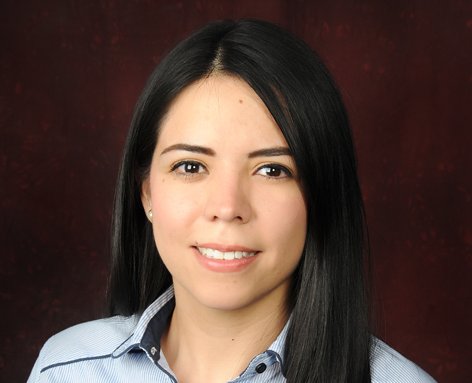
Elizabeth Bedón Sánchez, M.A. Doctoral Candidate
Elizabeth gained her bacherlor’s degree in International Relations and Business at the Pontificia Universidad Católica del Ecuador in Quito. After having worked almost four years at the U.S. Embassy in her home country, she decided to pursue her interests in Global History in the Erasmus Mundus Master Program of Global Studies in the Universities of Vienna and Leipzig.
Upon her return to Ecuador, and with the dawn of the global pandemic, she and a group of partners setup a consulting firm that addressed the need to reuse residues from the agri-food sector and add value. Circular Bioeconomy was the guiding economic model of this project within the context of Andean country. This experience provided fertile ground to assess the intersections between Natural World Heritage and Bioeconomy, which is the topic of Elizabeth’s research at the moment.
In December 2024, and after a thorough process, Elizabeth has been awarded with the Konrad-Adenauer-Stiftung (KAS) scholarship for talented international researchers.
Contact
Elizabeth Bedón Sánchez
Teaching building 10
Erich-Weinert-Str. 1
03046 Cottbus
Office hours
By appointment only
Research areas
Environmental Anthropology
- Assemblages of Technology and Environment
- Ecotechnologies

